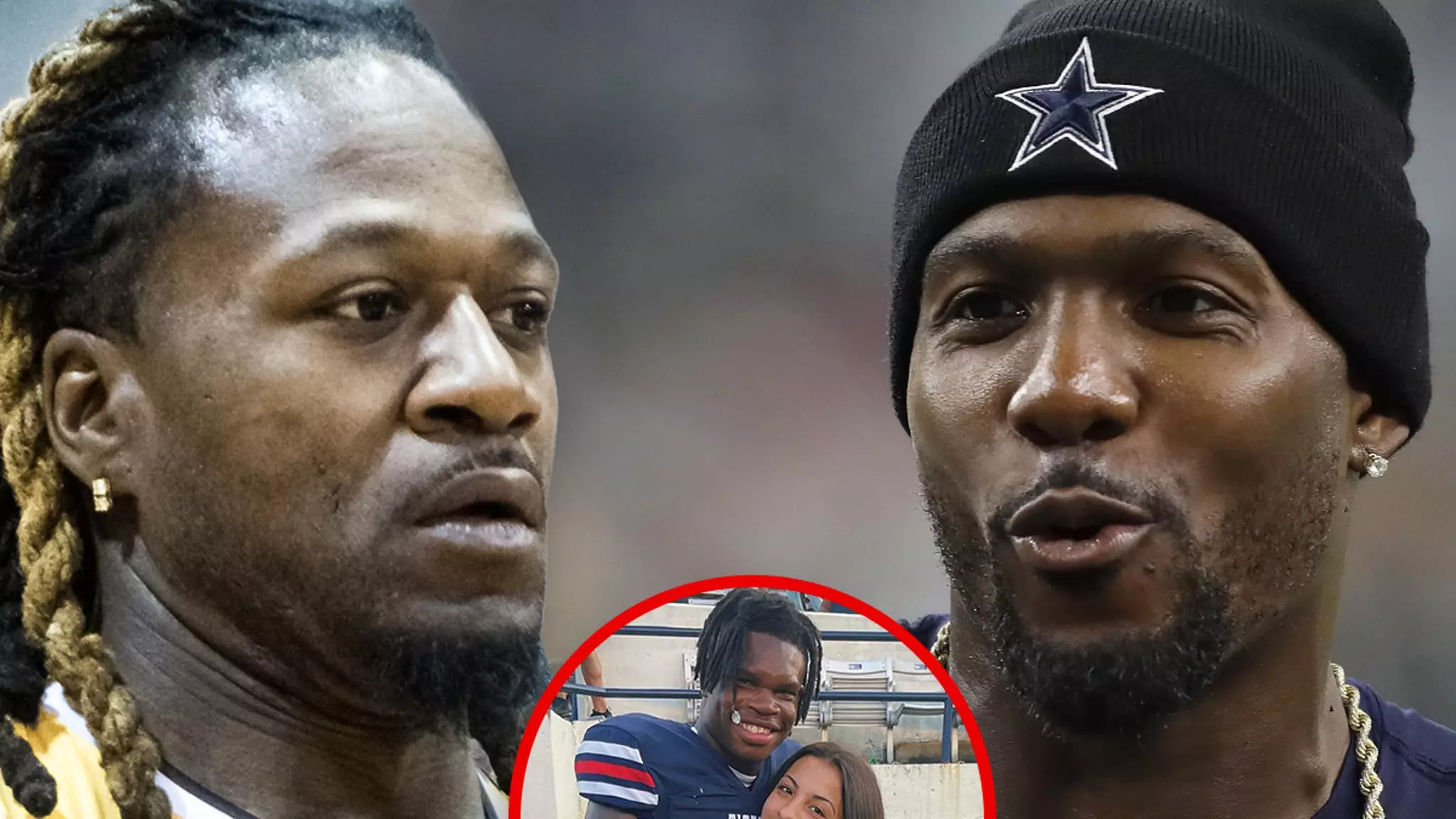In the world of professional sports, the lives of athletes often become a subject of scrutiny and debate among fans and commentators. Recently, the relationship of Travis Hunter, a rising star in college football, with his fiancée Leanna Lenee, has attracted unwarranted attention. Former NFL cornerback Pacman Jones has had enough. In a recent episode of his show, he confronted notable figures—specifically, Dez Bryant—who felt compelled to share their opinions on Hunter’s personal life. Jones’s passionate outburst reflects a larger issue: the invasive nature of public opinion surrounding the relationships of athletes, which can lead to undue stress and pressure for those involved.
Athletes often stand in the spotlight, and their every move is scrutinized by fans and media alike. However, what many fail to realize is that these athletes are also human beings who are entitled to a private life. Jones articulated this frustration vehemently, highlighting the ignorance of those who presume to know the dynamics of Hunter’s relationship. He asserted, “Ya’ll don’t know what this lady is doing to him behind closed doors.” This statement underscores the harsh reality that public perceptions can be skewed and that online narratives often lack context or an understanding of the nuances involved in personal relationships.
Social media platforms have amplified the phenomenon of public judgment, allowing anyone with a following to voice their opinions—often with little regard for the impact. Dez Bryant’s public advice for Hunter to reconsider his choice of partner exemplifies this trend. By taking to X (formerly Twitter), Bryant veered into a territory where concern morphed into intrusive commentary. Jones rebuked such behavior, suggesting that the scrutiny from other athletes is both atypical and unnecessary. The expectation that athletes should navigate their personal relationships under the watchful gaze of the public can be incredibly damaging, as it creates an atmosphere rife with speculation and judgment.
Jones’s defense of Hunter serves as a broader call for respect and privacy for all individuals, particularly in the world of sports. He emphasizes that everyone has the right to pursue their happiness free from external commentary and judgment. Shouldn’t the focus be on their talent and achievements rather than their personal lives? The call for silence on matters that do not directly involve public interests is a reminder that compassion and understanding should take precedence over unsolicited advice.
As the sports industry continues to evolve, the need for respect regarding personal choices becomes increasingly evident. Pacman Jones’s spirited defense of Travis Hunter strikes a chord in the ongoing dialogue about privacy, respect, and the boundaries that should exist in the portrayal of athletes. While fans and commentators are entitled to their opinions, it is vital to remember that every individual, regardless of their fame, deserves the right to a private life. The public discourse surrounding relationships needs to shift from speculation to understanding, fostering an environment where athletes can thrive both on and off the field.

